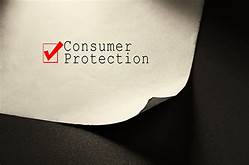 Most of our debt collection laws in Florida apply only for consumer debt, not business debt. Sometimes the answer is not quite clear as to what type of debt is involved. What if for instance you operate a business and took out a loan, but signed a personal guarantee. Sometimes, that personal guarantee will have language referring to the debt being for personal, family or household use. That would likely make the guarantee a consumer debt.
Most of our debt collection laws in Florida apply only for consumer debt, not business debt. Sometimes the answer is not quite clear as to what type of debt is involved. What if for instance you operate a business and took out a loan, but signed a personal guarantee. Sometimes, that personal guarantee will have language referring to the debt being for personal, family or household use. That would likely make the guarantee a consumer debt.
By the way, that terminology comes from the Florida Consumer Collection Practices Act (“FCCPA”), Fla. Stat. Section 559.55-559.77 which defines a consumer debt as a debt incurred for “personal, family or household use.”
What happens if you buy a house, live in it for years, but then ultimately end up moving and renting it out? Or you rent out a room while you are living there? Commericial or consumer debt?
In considering whether a debt is “commercial” or “consumer” in nature, the analysis begins and ends with the nature of the debt at the time of its inception. Miller v. McCalla, Raymer, Padrick, Cobb, Nichols, 214 F.3d 872, 874-875 (7th Cir. 2000)(where debtor lived in house, then later rented it out to tenants, house- related debt was “consumer debt” because debtor lived in house when he incurred debt).
Deficiency actions in foreclosures fall under consumer debt protections because they are now seeking to collect a debt, not necessarily seeking just to foreclose on the house. This means that the Fair Debt Collection Practices Act (“FDCPA”) and the FCCPA applies to all borrower communications. Also be aware of Florida’s 1 year statute of limitations on deficiency judgments for residential property.
For more information about creditor harassment protections you may have, please see our creditor harassment page: Christiearkovich.com.
 Reboot Your Life: Tampa Student Loan and Bankruptcy Attorney Blog
Reboot Your Life: Tampa Student Loan and Bankruptcy Attorney Blog

